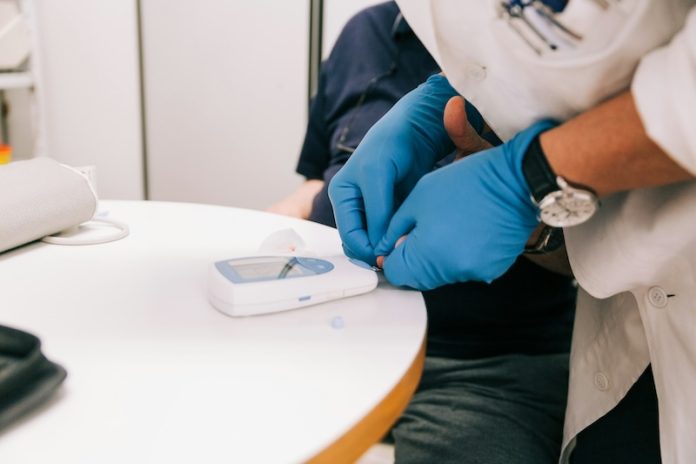
Type 2 diabetes is a condition that affects the way your body processes blood sugar (glucose).
Unlike Type 1 diabetes, which is typically diagnosed in children and young adults, Type 2 diabetes is more common in adults and is often related to lifestyle factors such as obesity and physical inactivity.
However, genetics and environmental factors also play a role. Managing Type 2 diabetes is crucial because, over time, high blood sugar levels can lead to a range of complications that affect nearly every part of the body.
The journey with Type 2 diabetes can take two distinct paths: one where the condition is managed effectively without complications, and another where complications arise, affecting quality of life.
Understanding these paths can empower individuals with Type 2 diabetes to take control of their health.
Without Complications
Managing Type 2 diabetes effectively involves a combination of lifestyle changes, monitoring blood sugar levels, and possibly medication.
Research has shown that significant lifestyle changes, including diet, exercise, and weight loss, can not only manage Type 2 diabetes effectively but sometimes even reverse it.
A diet rich in fruits, vegetables, lean proteins, and whole grains, alongside regular physical activity, can help control blood sugar levels and improve insulin sensitivity.
Regular monitoring of blood sugar levels is also vital. This enables individuals to understand how different foods and activities affect their blood sugar levels, helping them make informed decisions about their health.
For some, medication may be necessary to help manage their blood sugar levels. However, through diligent lifestyle management, many people with Type 2 diabetes can maintain their blood sugar levels within a healthy range, minimizing their risk of complications.
With Complications
When Type 2 diabetes is not effectively managed, high blood sugar levels over time can lead to complications that affect various parts of the body.
These complications can be broadly categorized into microvascular (affecting small blood vessels) and macrovascular (affecting large blood vessels) complications.
Microvascular complications include neuropathy (nerve damage), which can lead to numbness or pain in the extremities; nephropathy (kidney damage), which can result in kidney failure; and retinopathy (eye damage), which can cause vision loss.
These complications result from damage to the small blood vessels and can significantly impact quality of life.
Macrovascular complications are related to the heart and blood vessels and include heart disease, stroke, and peripheral artery disease.
High blood sugar levels can damage the arteries, leading to plaque buildup and reduced blood flow. These conditions are serious and can be life-threatening.
The Importance of Early Intervention
Research underscores the importance of early intervention and effective management of Type 2 diabetes. Lifestyle interventions, in particular, have been shown to significantly reduce the risk of complications.
Studies have found that diet and exercise alone can be as effective as medication for some people in the early stages of Type 2 diabetes.
Moreover, regular check-ups with healthcare providers are crucial for monitoring the condition and preventing complications. These check-ups often include blood tests to monitor blood sugar levels, as well as screenings for signs of complications.
In conclusion, Type 2 diabetes is a manageable condition, and the path it takes largely depends on how it is managed.
With effective lifestyle changes, regular monitoring, and, when necessary, medication, individuals with Type 2 diabetes can live healthy lives without complications.
However, without proper management, the risk of serious complications increases significantly. The message is clear: taking control of Type 2 diabetes is not just about managing blood sugar levels; it’s about protecting your overall health and well-being.
If you care about diabetes, please read studies about Vitamin D and type 2 diabetes, and to people with diabetes, some fruits are better than others.
For more information about diabetes, please see recent studies that low calorie diets may help reverse diabetes, and 5 vitamins that may prevent complication in diabetes.
Copyright © 2024 Knowridge Science Report. All rights reserved.



